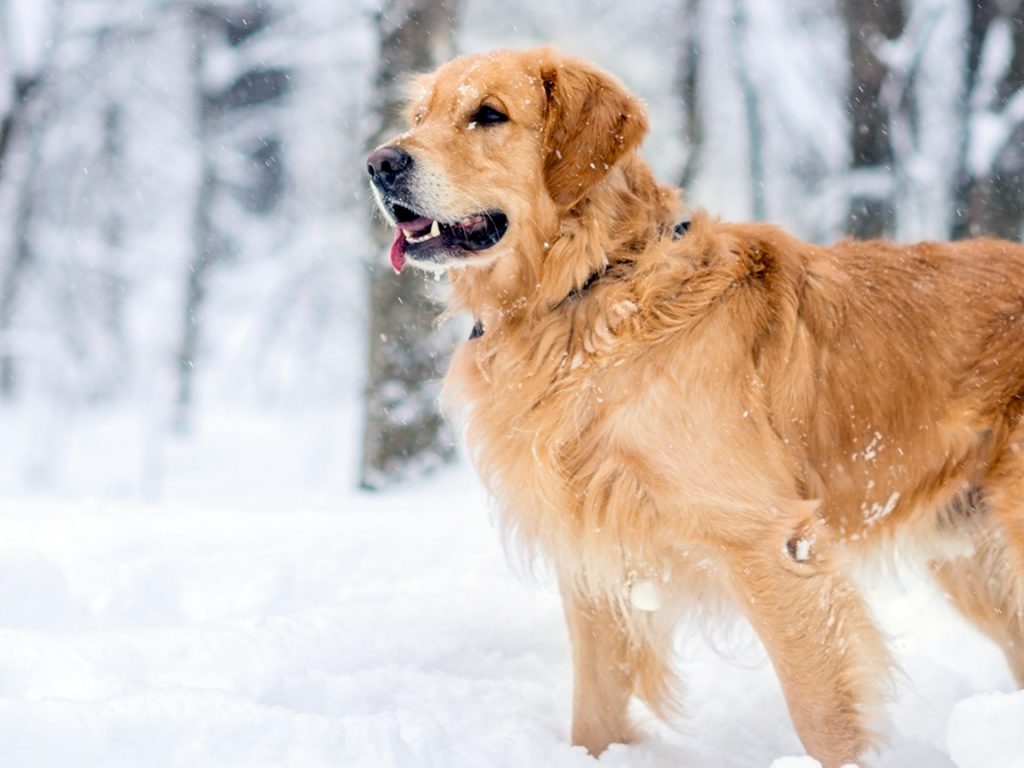A variety of dangers lurk during the chilly winter months. Here are some tips for keeping your pet safe.
Beware of Cold Winter Weather
One of the biggest winter dangers is low temperatures, which can lead to frostbite or hypothermia. To prevent this, make sure your pet isn’t exposed to cold temperatures for long periods of time. Signs of frostbite include pale or gray skin, pain when touching your pet’s ears or paws, and skin that stays cold. When severe, areas affected by frostbite will turn black. Symptoms of a hypothermic pet include shivering, lethargy, lack of appetite, and a weak pulse. If you think your pet is suffering from frostbite or hypothermia, contact a veterinarian immediately.
Dry off When You Come Inside
Salt irritates your pet’s paws and can be toxic if ingested. Always clean your pet’s paws (including between the toes), legs, and stomach when you come in from the outdoors. If your pet has cracked paws, check with your vet for recommendations on products that will help soothe them. You can also try booties when going for walks — they’re a great option for protecting paws. And when salting the driveway, make sure to use ice-melting products that are safe for pets.
Don’t Leave Your Pet in The Car
Just like summer, there are dangers of leaving your pet in a car during the winter. Pets can suffer from hypothermia and even death when left in a car during freezing temperatures.
Reduce Baths During the Winter
Go easy on baths during the winter months, as over bathing strips away your pet’s natural oils and can cause dry skin. Your vet can advise on how often you should bathe your pet during winter and whether you should use a moisturizing shampoo.
Keep Antifreeze and Rodenticides Out of Reach
Both are used more often in the winter and are toxic to pets. Be sure all containers are closed tightly and out of paw’s reach. Also look under your car to make sure it isn’t leaking antifreeze. If your pet ingests antifreeze or a rodenticide, contact a vet immediately.
Check Around Your Car Before Going Anywhere in Winter
Outdoor pets gravitate toward cars for warmth, especially running cars or ones where the engine has been recently turned off. Some animals even crawl under the hood to stay warm. Before driving anywhere, look around your car, bang on the hood, or honk the horn to make sure no animals are hiding nearby.
Take Care Around Fireplaces and Space Heaters
Train your pet to stay away from heat sources and avoid using space heaters, as pets can knock them over or get burned. Always keep an eye on pets around fireplaces and never leave them unattended. If you need to leave the room while your fireplace is still burning, bring your pet with you. Also be sure your fireplace has a grate in front of it to prevent loose, hot embers from singeing your furry friend.

